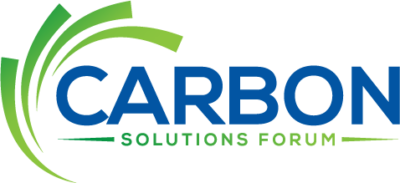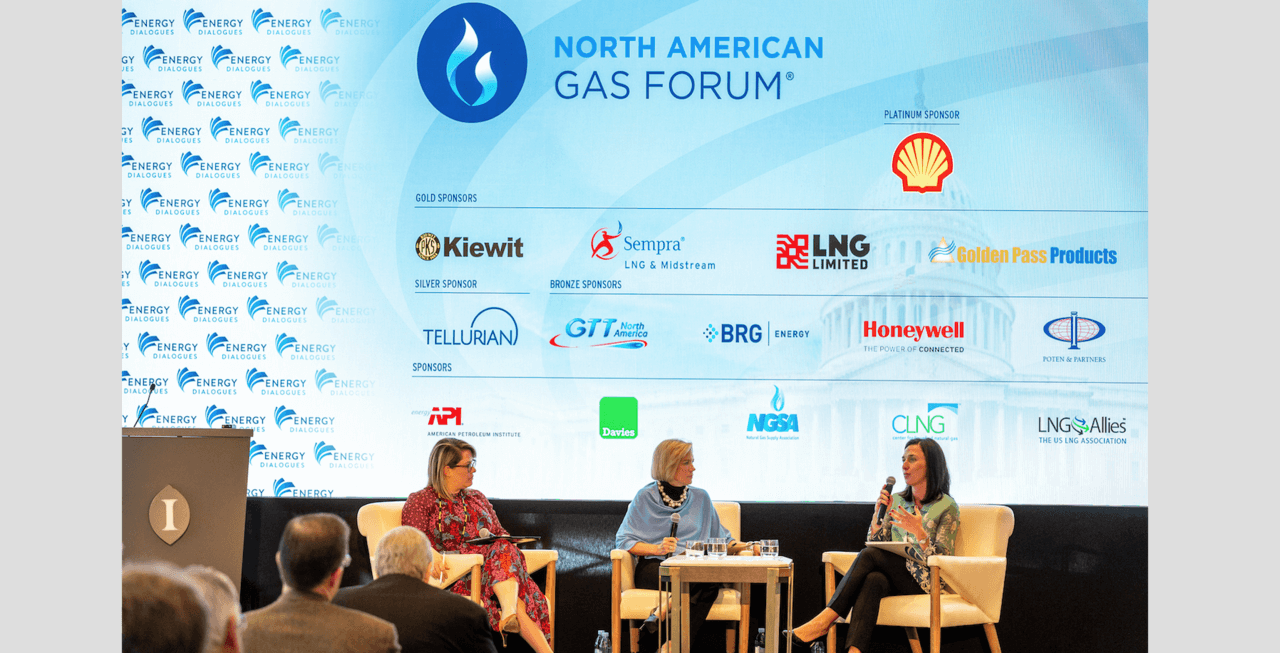Coalition Building, Diversity Considerations & Telling the Energy Story Better
Written by Energy Dialogues’ Managing Director, Monika Simões
I recently had the pleasure to share the stage with two leading women in the energy industry, Dena Wiggins, President & CEO of NGSA and Sarah Sandberg, Senior Director of Communications & Public Affairs at DCP Midstream. We came together at Energy Dialogues’ North American Gas Forum in Washington D.C.
After two days of great discussions with a focus on strategic and commercial themes across the natural gas and wider energy value chain, new technologies, industry innovation and more, we talked about women leaders in the energy industry, Millennials entering the workforce, the “great crew change” ahead and the important story the energy industry has to tell and how it can do so better.
It was truly a fascinating conversation, talking about the (then) upcoming vote on proposition 112 in Colorado, what the energy industry can do better to attract new generations, develop women to excel in leadership positions, the need for concrete action to move plans forward, how to approach opposition voices to fossil fuels, and what successful coalition building amongst progressive partners may look like. We covered a lot of ground to understand what it will take to maintain the social license to operate and the crucial role energy plays in all aspects of our daily lives.
Something that caught my attention was how many hands were raised for questions and comments after our panel. The level of engagement in the audience was a great indicator for just how important these issues are today and how essential that we address them collectively and engineer solutions in partnership across all career levels, age groups, genders and backgrounds to truly solve challenges and leverage opportunities.
In the spirit of creating concrete action items as a follow-up to great dialogue, and engage a wider audience, here are a few highlights and takeaways from our conversation:
- The “great crew change” is coming and in this industry full of opportunities for progress and potential for growth, all the bright minds that can be gathered, need to be brought into the conversation to contribute to solving challenges and seize opportunities to further develop breakthrough technologies, drive innovation, AI, and an increasing pace of digitalization. Ultimately this is what will determine the path towards a dynamic, clean, efficient, low carbon energy future. The take away from this part of the discussion was a recommendation: “If you work in the energy sector, ask yourself; what can my company do to increasingly bring Millennials and the leaders of tomorrow into my organization?”
- According to research, the number one reason women leave the oil and gas industryis that they didn’t have executive sponsorship. Our panel take away here was that if you are in a mid- or senior-level management position, offer to mentor a woman in your company; mentorship has the potential to positively impact someone’s professional (and personal) trajectory. And, while it is important to offer mentorship, it is also important to ask for it, because, like so many things, the engagement needs to come from both sides to be successful.
- Energy poverty is increasingly taking center stage across our energy dialogues, because we have to look at the global, not just local, picture when we talk about sustainable production and use of energy; according to WHO there are 3 billion people who cook using polluting open fires or stoves fueled by kerosene, biomass (including wood, dung and crop waste) and coal. Each year, close to 4 million people die prematurely from illness attributable to household air pollution from inefficient cooking practices using polluting stoves paired with solid fuels and kerosene. One of the great debates is that natural gas can be part of the solution to lower these numbers, provide a cleaner energy alternative and solution globally and lift people out of poverty through crucial access to energy. Clearly not everyone agrees that natural gas is the answer, judging by the opposing voices to natural gas development and those who would like to “keep it in the ground”. Is it a distrust in the energy industry as a whole? The belief that there must be a better solution through 100% renewable energy? Or a lack of knowledge of the severity of the energy access problem? Ultimately, wherever it leads us, we need to arrive at a conversation that is based on facts, looks at energy access globally and implications on quality of life of humans everywhere.
- We often hear how Millennials care about a purpose in their work, in their life, and want to contribute to a greater good. So a question to be asked here is, if we talk about Millennials who aspire to purposeful work: lifting people out of poverty globally surely must rank high up there. Yet, listening to a Ted Talk recently, I heard that as many as 50% of Millennials say they would not work in the oil and gas industry, one they equate to – as presented in the the talk – “a polluting, old and corrupt industry”. If more young people, at the crossroads of picking a professional career could see all the good energy can contribute to, how many more break throughs in technology and innovation could be accomplished that would benefit those who need it most in the world? How can we acknowledge what needs improvement, while also look in meaningful ways at global solutions?
Energy Dialogues has been a vocal proponent of creating dialogue with the aim to grow the number of people in the “rational middle” or “radical middle” as it is often referred to.
Is there a radical middle in the current energy narrative beyond a room like at the recent North American Gas Forum and how we can expand it? Growing the middle will require widening the circle of dialogue, bringing in a large range of perspectives, often opposing ones, but willing to engage in dialogue and goal setting. It will require a lot of listening and building trust to pave the road for dialogue and ultimately a factual understanding of what we collectively need to do to achieve a balance of providing quality of life to humanity globally and the health of our planet. The journey from ideas to implementation needs to include a broad group of stakeholders and a continuous pushing of boundaries.
There are many legitimate questions to be asked. There are many answers. And much debate. The dialogue continues. Our next North American Gas Forum is scheduled for October 2019 in Washington D.C. Make sure you join the conversation!
If you would like to be part of both, future dialogue & future solutions, please get in touch with us. We are continuing to engage leadership across the value chain at our 2019 events, including the North American Gas Forum, our Mexican Energy Forum and our by-invitation-only City Series, co-hosted with academic partners including Rice University’s Baker Institute, Colorado School of Mines, Johns Hopkins SAIS, Stanford Natural Gas Initiative and others. #JoinTheDialogue






